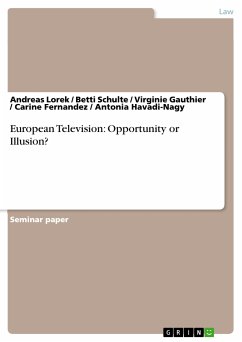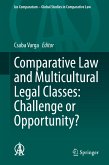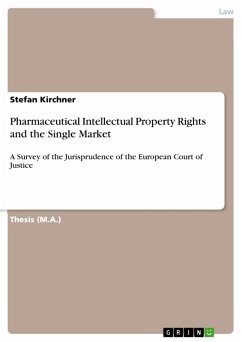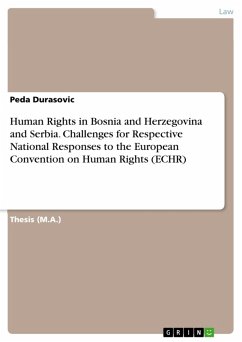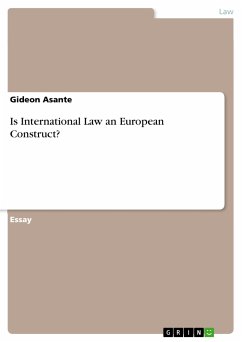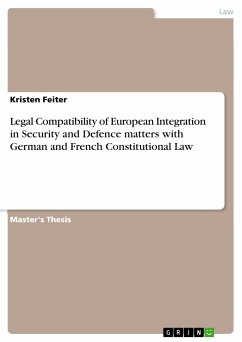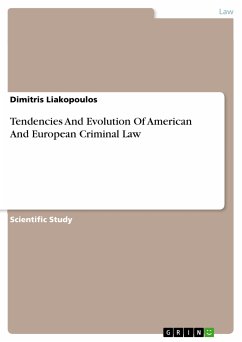Seminar paper from the year 2002 in the subject Law - European and International Law, Intellectual Properties, grade: 9/10, Hogeschool Zeeland (Law/Recht), course: European Law, language: English, abstract: With the European Union and the growing importance of Media, it is quite obvious to think of a European Channel, which could bring different European cultures, interests and peoples together. As one can look at this complex topic from many different angles, we would like to divide our work into three parts in order to make it as structured and as understandable as possible. The first part consists of guidelines, regulations and restrictions by the European Union, discussing the different interest of the European Union and the individual Member States concerning media issues. In the second part we introduce two former European TV projects, which failed because of several problems, such as cultural differences. Finally we focus on ARTE, the Franco-German corporation, which is an example of cross-cultural communication within Europe by creating a European cultural channel. We give a short overview and discuss the difficulties, which can rise because of intercultural differences. Throughout the paper we try to get to an answer whether European TV is an Opportunity or an Illusion?
Dieser Download kann aus rechtlichen Gründen nur mit Rechnungsadresse in A, B, BG, CY, CZ, D, DK, EW, E, FIN, F, GR, HR, H, IRL, I, LT, L, LR, M, NL, PL, P, R, S, SLO, SK ausgeliefert werden.

